RCM2
Brighter images. Larger field of view.
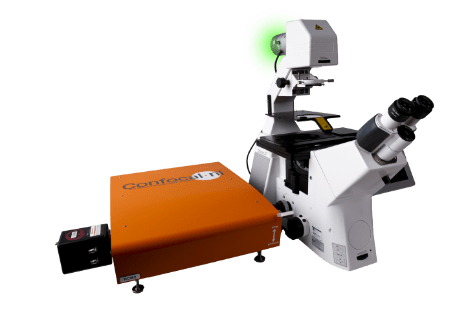
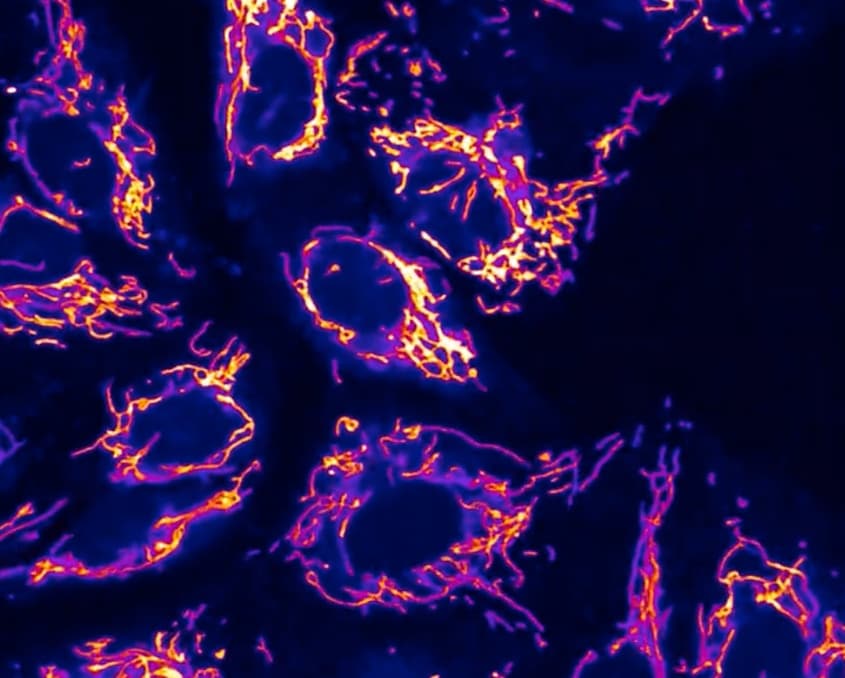
In this movie mitochondria and actin dynamics are observed during long-term live cell imaging. RCM2 40x 1.4NA provided high contrast and a large field of view
Brighter images.
Larger field of view
RCM2 is our second generation RCM, with digital scanner technology. It makes re-scanning the standard and allows a speed of 2fps at 512×512 pixels. RCM2 has optics to make it suitable for super-resolution imaging with high NA objectives in the low magnification range, like 40x 1.4. A lower magnification allows for a bigger field of view (FOV), brighter images, and even lower laser power. RCM2 has demonstrated imaging at 10 nano-watt excitation power!
Improvements of sCMOS cameras allow you to sample resolution of low magnification objectives effectively, without increasing the exposure time. In a regular PMT-based confocal this is not possible.
Improve your imaging experience with RCM2
- Super-resolution (120nm) imaging with 40x 1.4NA objectives.
- Larger FOV without increasing acquisition time.
- Excellent add-on to any widefield microscope.
- Easy to use.
- Hardware integration in third-party software.
See how RCM2 improves your imaging experience for yourself
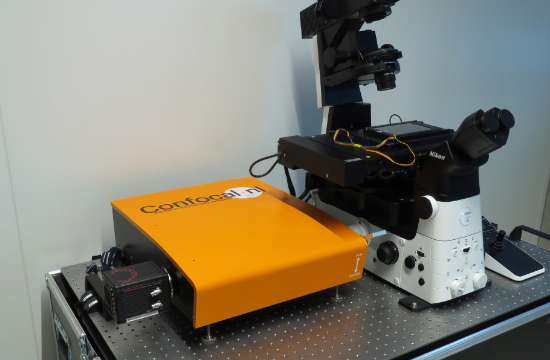
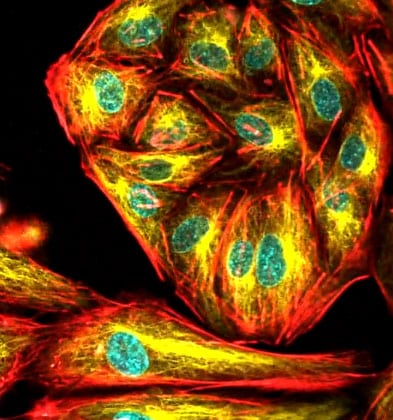
HUVEC cells stained for SPY 505 DNA, SPY550 Actin and SPY650 tubulin.
Discover super-resolution imaging with RCM2
Capture datasets of 170nm resolution raw (120 after deconvolution) over a very large FOV. Study fast live-cell dynamics and perform 3D imaging in optimized conditions. The increased detection efficiency facilitates acquisition in low fluorescence conditions, like single-molecule detection (smFISH).
In combination with silicon objectives, RCM2 allows for deep 3D imaging of organoids, zebrafish embryos, or larger live samples.
See how RCM2 improves your imaging experience for yourself
The benefits of RCM2
Using RCM2 with a 40x 1.4 objective, you can see more cells at full resolution at once. A larger field of view increases the chances of getting the results you need.
Obtain sharp images with a high signal-to-noise ratio even in samples with a low amount of epitopes or weak stainings. Get more from your samples.
Use even lower laser power to minimize phototoxicity and photobleaching during live-cell imaging.
Getting super-resolution raw images, without averaging or integration, reduces the acquisition time and allows for a more precise analysis of the subcellular structures.
See how RCM2 improves your imaging experience for yourself
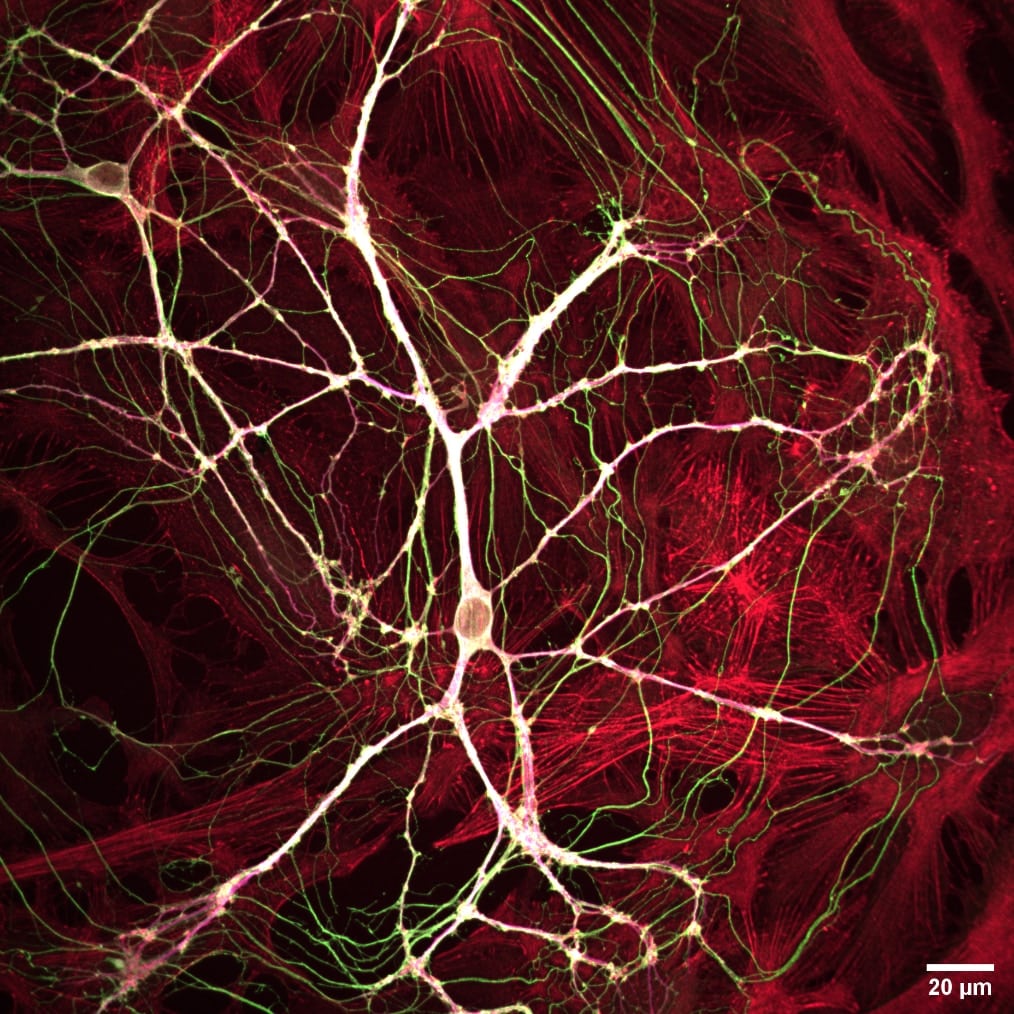
Neurons in co-culture stained for Actin (red), MAP2 (magenta) and Tau (green). Imaged on RCM2 with a 40x 1.4 objective. Sample courtesy: Vera Wiersma, VU University, Amsterdam, the Netherlands.
Applications for RCM2
Capture datasets of 170nm resolution raw (120 after deconvolution) over a very large FOV. Study fast live-cell dynamics and perform 3D imaging in optimized conditions. The increased detection efficiency facilitates acquisition in low fluorescence conditions, like single-molecule detection (smFISH).
In combination with silicon objectives, RCM2 allows for deep 3D imaging of organoids, zebrafish embryos, or larger live samples.


RCM2: technical specs
RCM2 | |
|---|---|
Detector | Camera (sCMOS) |
Resolution in real time | 120 nm * |
Detector Sensitivity | up to 96% QE |
FOV | FN12: 220×220 µm (40x objective), FN18 when not using super resolution |
Speed | 2 fps at 512 x 512 px, 15 fps in sprint level max at 256 x 256 px |
Wavelength | standard VIS (400-700 nm), optional VIS-NIR (400-950 nm) with RCM2.5 |
Software | Micromanager, Inscoper, Volocity, NIS Elements,
SDK available for integration on request |
Deconvolution with | Microvolution (real time); SVI Hyugens (post processing) |
Modalities | Super Resolution, Confocal, Widefield, Brightfield |
Emission Filters | standard quad band, optional external single band filter wheel |
Weight | 23kg |
*after deconvolution, raw image = 170nm

See for yourself how we improve your experience
Request your
personalized demo
- Your online demo will be shown in only 45-60 minutes
- Our experts will lead you through our products performance
- We will contact you and together, we pick a day and time

